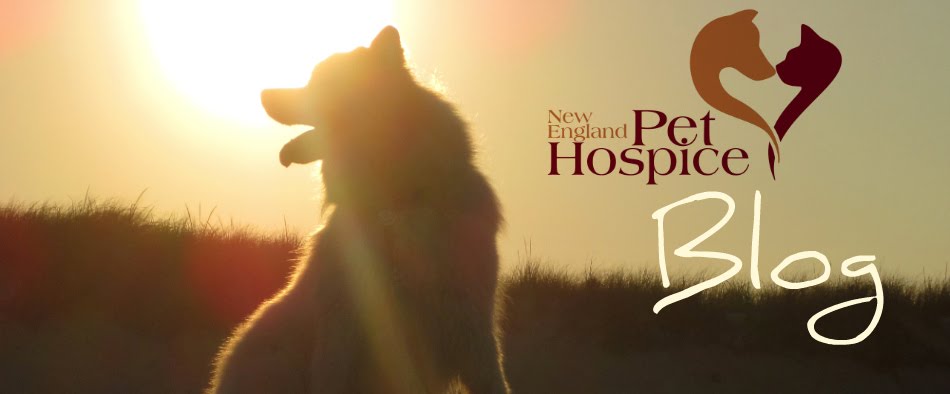Read on for signs to watch for and what you can do to help...
What to Watch for:
- Loss of Appetite
- Lethargy
- Change in quality of sleep or sleep location
- Pacing or other signs of agitation
- Increased panting and drooling
- Increased vocalization - whining, barking, meowing
- Clinginess - wanting to be with you at all times
- Waiting at, or running to, the door or window
What You Can Do:
1. Provide Extra Love, Affection and Attention - your animal is mourning just like you and needs your attention and love. Think of how many times a kind word, pat on the shoulder, extra attention from a friend, or a hug made a world of difference to you when you were mourning. Your companion animal needs that also.
2. Distract Your Surviving Animal - with play, exercise, new toys and treats. Hide them for your animal to find when you are away. Use "thinking" games, where the animal has to search for something or solve a puzzle to get a treat or toy. Take your dog to a new park or conservation area. Arrange play dates for social animals to help with loneliness. Enroll in a training or games class.
3. Reinforce Good Behaviors - be careful with reinforcements. While your cat's sad yowling or your dog's whining may break your heart, giving extra attention, love or treats at that time may backfire. You may be unintentionally reinforcing a behavior you do not wish to continue. Be sure to offer support and rewards when your companion animal is behaving in a way you like - sitting quietly, playing, being affectionate.
4. WAIT to Introduce a New Animal Into the Household - while it may seem like a new animal will buoy the spirits of all in your home, it is more likely to add stress and anxiety for your companions. Wait until you have settled into a new routine and have all had a chance to mourn your loss before adding another animal to your pack.
5. Be Patient - Mourning and grief are time-consuming things. Just as it will take time for your heart to heal, so too with your companion animal.
6. Get professional Advice - if you pet refuses to eat and is losing weight, or continues to mourn for a long period with no sign of improvement, speak with your vet about whether he or she can help.
If you have other ideas or suggestions, please share them with us!

Super article!
ReplyDeleteI teach pet first aid, CPR & care certification classes in Los Angeles. When a pet owner has multiple pets and one gets sick and dies outside the home (at the vet's office, for example), we advise the pet parent to bring the body of the deceased animal home so that the remaining pets can sniff it and understand that their companion has crossed over the rainbow bridge. Otherwise, the remaining pets don't have that closure and may be confused about where their companion is.
Thank you, Jillian. I couldn't agree more about allowing the remaining animals to see, smell and be with the departed animal. BrightHaven and Angel's Gate, animal sanctuaries and hospices, actually hold a wake for their animals in which the other animals at the sanctuary have an opportunity to do just that and they find it makes a big difference.
ReplyDeleteThank you for sharing this important point.
Best wishes,
Heather
Founder and Team Leader
New England pet Hospice, Inc.
My girl cat who died last night and our boy cat were never close. It took many years for them to be civil to eachother. They never slept together, groomed eachother and rarely could walk by eachother without a hiss ensuing. Today, my boy cat is lying on our bed where Alexis died last night. That is NOT a place he normally sleeps unless it is night time. I think he misses her...
ReplyDeleteHow beautiful, Emily. Our animals have complex relationships that we don't always understand and even when they seem to be on different pages, they appreciate each others company and presence. hey often seem lost for a few hours or a few days afterwards, staying close to where the companion died, is buried, or used to spend time. Sometimes they will even yowl or cry, other times just settle in and want to be there. Like you, he will need extra support and attention as he processes the loss.
ReplyDeleteKeep us posted as to how he (and you) are doing and let us know if we can be of any help.
Best wishes,
Heather
Heather Merrill, C.T.
Certified in Thanatology: Death, Dying and Bereavement
Founder and Director
New England Pet Hospice, Inc.